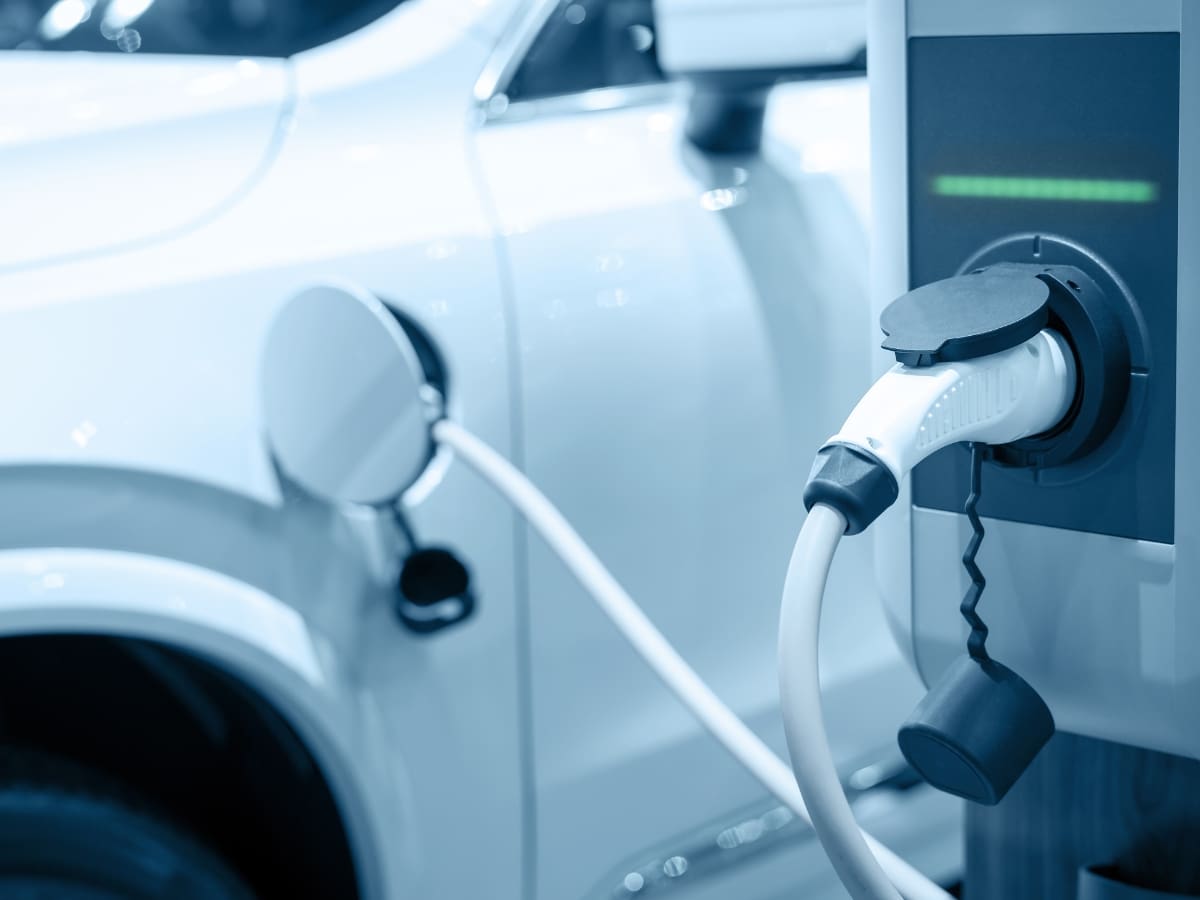When you need portable power, generators can be a great solution. But you must think about a generator’s exhaust whenever you run it. There’s not much to do if you’re in a well-ventilated area, but sometimes you might need to install a generator exhaust extension.
Adding an exhaust extension to your generator can be done quickly and easily without spending much money. But there are some crucial things to consider. You don’t want to cause problems with your generator or its exhaust.
In this post, we’re going to cover the following key topics:
- Can You Extend Generator Exhaust?
- How Much Airflow Does a Generator Need?
- How Do I Extend My Portable Generator Exhaust?
- Can You Put a Muffler On a Generator?
- Do Generators Need to Be Vented?
Keep reading to discover all you need to know about installing a generator exhaust extension.
No products found.

Can You Extend Generator Exhaust?
It is entirely possible to add a generator exhaust extension. It is also wise to do in many situations where properly venting the fumes coming off your generator is a challenge.
The fumes that generators create are harmful to health. Just as you don’t want to breathe in the exhaust coming off your vehicle, you should be concerned about inhaling your generator’s exhaust.
If you’re using a generator in an outdoor space far away from people, then you probably don’t need to be concerned about installing a generator exhaust extension.
On the other hand, if you need to use your generator in a more enclosed space or the fumes aren’t being pushed far enough away, adding an extension to the exhaust system can help keep you and your family or friends safe and healthy.
How Much Airflow Does a Generator Need?
Since there are so many different types and sizes of generators on the market, there’s no specific answer to how much airflow they need. But they do need airflow. And if you’re installing an extension on the exhaust, you want to keep the airflow available to avoid problems.
Generators are small engines that produce electricity. Most use a combination of air, fuel, and spark to create power. Airflow is vital to running well.
To ensure your generator is working well, it needs to have airflow in two places:
- The intake to pull air in;
- The exhaust lets toxic fumes out; and
- Both sides need to be open and allow the generator to pass air through well.
When installing an exhaust extension, you should use the same size tubing that your generator’s exhaust uses. The airflow should be sufficient to keep your generator running well.
Using too small of a pipe could restrict airflow. This might cause problems in your generator’s ability to run. It could also result in an accumulation of exhaust fumes near the generator.
How Do I Extend My Portable Generator Exhaust?
Extending your portable generator’s exhaust is as easy as 1-2-3:
- Measure the diameter of the exhaust pipe and the length of exhaust desired;
- Purchase a flexible metal exhaust tube and appropriate size clamps; and
- Install the exhaust extension and route to a well-ventilated area.
Let’s dive into each step in detail.
Measuring Diameter and Length
The first step is identifying the size you need. For this, go to your generator and find the existing exhaust pipe. Use a measuring tape or vernier caliper to get a more precise measurement.
Measure the outside diameter of the exhaust coming off your generator. This will be the inside diameter of the exhaust extension you want to buy. Add a small amount (about 1/16 of an inch) to the diameter to make sure the extension fits over the existing exhaust pipe.
The second measurement you need is the length of the generator exhaust extension. Make sure to carefully measure the total length, accounting for any turns and ensuring that the end of the exhaust is far enough away from any enclosed space.

Buying Exhaust Extension Pipe and Clamps
There are many different solutions for adding an extension to your generator’s exhaust. People often use a flexible metal tube added to their generator. You can also buy rigid tubing if you only need to add a straight extension.
You might be wondering if you can use other non-metallic options. Here are two of the most often considered solutions.
Can You Use Silicone Hose for Exhaust?
Silicone is a fantastic material. Even though it looks like plastic, some silicone materials can withstand high heat applications. If you get the proper silicone hose, it can extend your generator’s exhaust.
But ensure that the silicone hose you purchase works for high-heat applications. Some generator exhaust kits use silicone hoses, so those are an option to buy. They are designed to be used with a generator.
Can You Use PVC for Generator Exhaust?
PVC is not like silicone. It is a type of plastic, and while it can sometimes handle a bit of heat, like with hot water, it is much more susceptible to heat. PVC should not be used for generator exhaust because the exhaust temperature is likely hot enough to melt the PVC.
That’s why you should avoid using PVC when adding an exhaust extension to your generator. You don’t want to melt the plastic tube and potentially cause issues with the proper venting of the exhaust fumes.
Installing the Exhaust Extension
The final step is to install the exhaust extension to your generator. To do this, start by cleaning off all surfaces thoroughly. A clean surface will allow for a solid seal. This is important because you don’t want leaks in your exhaust.
Once clean, put the clamp on the extension pipe and connect it to your generator. Route the rest of the exhaust extension, keeping a solid airflow throughout the line.
After everything is in place, clamp the extension down tightly and double-check that it can vent the fumes away. Then test your generator and check for any leaks.
Can You Put a Muffler On a Generator?
Generators can be noisy. This is why you might be wondering if you can put a muffler on your generator’s exhaust. Yes, you can put a muffler on the generator’s exhaust.
A muffler might not help with the generator noise too much, however. Most of the noise from generators comes from the engine itself. To help reduce that noise, you might be able to put your generator in an enclosed space.
Do Generators Need to Be Vented?
Since we’re on the topic of airflow, let’s quickly talk about vents too. As mentioned earlier, generators are engines that need airflow. Therefore, if you put a generator in an enclosed space, they need to be vented.
Generators need to have access to fresh air for their intake and have somewhere they can expel exhaust fumes. You don’t want to place a generator in an entirely closed space. By doing so, exhaust fumes can build up inside the small chamber.
Always provide a fresh air source to your generator. Sometimes you might need to add a vent to provide this air. Also, provide a way to expel the exhaust fumes, such as adding an extension to the exhaust.
How Do You Vent a Generator?
Adding a vent for a generator is easy. We’ve already talked about extending the exhaust, so now let’s focus on the air coming into the generator.
The incoming air needs to be fresh. It shouldn’t be overly hot or full of exhaust fumes. Quite commonly, the space around a generator is enough to pull in fresh air for combustion, which is then routed out through the exhaust.
But if your generator is in a small enclosed location, add a vent to bring in the fresh air. To add a vent, there are many solutions. The easiest is to add a small air vent used for household forced-air intakes to the exterior enclosure around the generator.
Find a vent that allows sufficient airflow for your generator, cut a hole in the enclosure to match the vent, and install the vent. Make sure it supplies fresh air to the intake area of your generator, and you should be good to go.
Can I Run My Generator In My Shed?
Yes, you can run a generator in your shed. Just make sure it has a vent to suck in the fresh air. More importantly, ensure that the exhaust is properly routed and extended to reach outside the shed. Without proper ventilation, you do not want to run a generator in an enclosed space.
Ensure the exhaust does not build up inside the small area. This is harmful to your health and can lead to terrible consequences similar to what happens if you run a vehicle in an enclosed space.
Can I Run a Generator In a Detached Garage?
Just like sheds, you can use a generator in a detached garage. Just ensure it has access to fresh air for the intake and that the exhaust is routed outside the garage.
Can I Run a Propane Generator In My Garage?
Propane generators work inside a garage. They don’t require as much ventilation as gasoline or diesel generators, but you still need to supply fresh air for the generator to work.
Also, burning propane will reduce the oxygen level inside a small enclosed space. If you use a propane generator inside of a small space, make sure there is sufficient airflow. If your generator has an exhaust pipe, it should be routed to an outside area.
How Hot Does a Generator Muffler Get?
Generators create combustion at extremely high temperatures, sometimes between 500 and up to 1,300 degrees Fahrenheit. The exhaust and muffler of a generator can reach similar temperatures.
Exhaust Extensions for Specific Uses and Makes
This section will briefly cover a few of the top generator applications and models to let you know what needs to be done to extend their exhaust.
Diesel Generator Exhaust Extension
Diesel generators can also have their exhaust extended. Because diesel generally creates more toxic fumes, extending your diesel generator’s exhaust can be crucial.
As with any generator exhaust extension, make sure that air can flow freely, that the exhaust doesn’t have any leaks, and that it is routed to an area away from people.
No products found.
Generator Exhaust Extension Home Depot
Home Depot can be a great place to find a generator exhaust extension. Some might have specific kits in stock for your generator, especially if it’s a brand of generator they carry.
But even if they don’t have kits in stock, you can turn to the many metal tubing and pipe selection at a home depot, plus a set of quality clamps, and create your generator exhaust extension.
Generator Exhaust Extension for RV
RVs are a perfect example of when you might need to extend your exhaust. Perhaps you’re noticing a smell inside of your RV, or you just want to have the fumes go elsewhere.
You can ask your local RV repair shop for assistance or create your own by going to places like Home Depot. Some online retailers will also sell kits specific for RV purposes.
Generac Generator Exhaust Extension
You can add an exhaust extension to Generac generators. Look for a specific kit online or buy your clamp and tubing.
Firman Generator Exhaust Extension
Firman generators can also have their exhaust extended, especially when used in an enclosed area. Once again, look for specific kits or measure the diameter and length tube you need and make your own.
Honda Generator Exhaust Extension
Honda generators are some of the most popular generators on the market. Specific kits work to extend their exhaust pipes, or you can build your own.
Duromax Generator Exhaust Extension Kits
Available in many models, Duromax generators can also have their exhaust extended. You can find kits online or create your own.
Champion Generator Exhaust Extension Kit
Extend the exhaust on your Champion generator by finding a kit made specifically for it. Make sure to find one meant for your model, or measure the exhaust pipe’s diameter and create your own.
Wen Generator Exhaust Extension
Wen generators can also have their exhaust extended. By adding a pipe and clamp that can withstand high temperatures of exhaust fumes, you can send those fumes far away and keep your health close.
Sources
- https://www.osha.gov/laws-regs/regulations/standardnumber/1926/1926.953
- https://web.mit.edu/aaclab/pdfs/Yildiz%20CEP.pdf
- http://homepages.math.uic.edu/~saunders/MTHT470/teacherlab_circumferencevsdiameter.pdf
- http://chemwiki.ucdavis.edu/Organic_Chemistry/Polymers/Silicone_Polymers
- https://engineering.wisc.edu/news/melting-point-new-approach-for-breaking-plastics-down-shows-promise-for-upcycling-them/
- https://doi.org/10.4028/www.scientific.net/AMM.307.196
- https://citeseerx.ist.psu.edu/viewdoc/download?doi=10.1.1.847.4395&rep=rep1&type=pdf
- https://www.coynecollege.edu/a-brief-history-of-hvac-air-conditioning/



